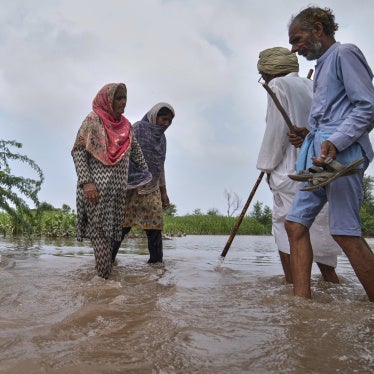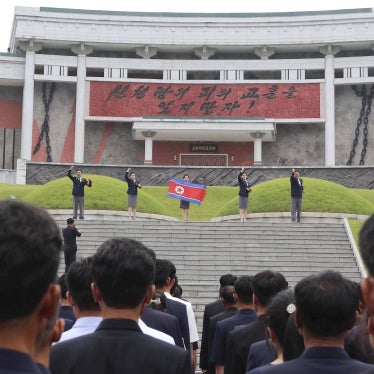The Right Honourable Dr. Ram Baran Yadav
President of Nepal
Rastrapati Bhawan,
Kathmandu, Nepal
Re: Executive Ordinance on Commission of Inquiry on Disappeared Persons, Truth and Reconciliation
Your Excellency,
Amnesty International, Human Rights Watch, the International Commission of Jurists, and TRIAL (Swiss Association against Impunity) urge you to return the ordinance that was forwarded by the Council of Ministers on 28 August 2012 to your office, seeking presidential approval for the establishment of a Commission of Inquiry on Disappeared Persons, Truth and Reconciliation (‘the Commission’).
Justice, truth and reparation for serious human rights violations has been a key demand of the Nepali people for years now. Despite repeated promises, successive governments have failed to satisfy this demand. The proposed ordinance now before you seems to continue this trend of allowing political expediency to prevent accountability, entrench impunity and deny the right of the Nepali people to justice, and we encourage you to return this ordinance immediately.
The executive ordinance (an official version of which we have seen) would empower a politically constituted Commission with discretion to recommend the granting of amnesties for crimes under international law. We have written on prior occasions to the Government to point out that amnesties, which prevent the emergence of truth and allow those suspected of criminal responsibility for crimes under international law, such as enforced disappearance, torture and other ill-treatment, rape and extrajudicial executions, to escape justice violate both international law and the Nepali Supreme Court’s decisions in several cases.[i]
The prohibition on amnesties for crimes under international law is contained, among other international standards, in Article 24 of the UN Updated Set of Principles for the Promotion and Protection of Human Rights through Action to Combat Impunity, which states that:
“The perpetrators of serious crimes under international law may not benefit from [amnesties and other measures of clemency] until such time as … the perpetrators have been prosecuted before a court with jurisdiction …”
Furthermore, as a State Party to the International Covenant on Civil and Political Rights (ICCPR), the Government of Nepal must investigate and prosecute all instances of serious human rights abuses, and guarantee victims’ right to an effective remedy and to be heard by an independent and impartial tribunal.[ii]
These obligations have also been emphasized in recent decisions of the Supreme Court, particularly in the Rabindra Dhakal Case,[iii] where the Government was directed to criminalise the act of enforced disappearance as a non-amnestiable crime and to establish a separate commission, in accordance with international law and standards, to look into cases of enforced disappearance during the conflict.
The International Commission of Jurists, Human Rights Watch, Amnesty International and TRIAL have on earlier occasions called on the Government to ensure that legislation establishing transitional justice mechanisms – which should not replace judicial proceedings – conform to international standards. Specific safeguards include: (i) terms of reference and a scope of inquiry which are neutral and adequately framed; (ii) guarantees of independence such that the Commission is structurally and hierarchically independent of the authorities facing complaints; (iii) enjoyment of adequate administrative authority and resources; (iv) non-politicised appointment of the Commission, followed by wide and public notice of the appointment of the Commission and its mandate; (v) public Commission proceedings; (vi) effective victim and witness protection; and (vii) publicising the Commission’s final report(s).[iv]
The mechanisms proposed in the ordinance fall short of these standards. Under the procedure contained in the executive ordinance, the proposed Commissioners – as well as the Attorney General – would be political appointees, and are thus very much vulnerable to the kind of political pressure that international standards explicitly seek to avoid. For instance, section 28 of the ordinance provides that the Office of the Attorney General retains discretion in prosecuting criminal cases, which places a political appointee at the centre of a process designed to implement Nepal’s obligation to bring prosecutions for the most serious of human rights crimes. Moreover, the Attorney General’s office has a poor track record in pursuing justice for serious human rights violations through the criminal justice system (as documented by the International Commission of Jurists in its recent report, Commissions of Inquiry in Nepal: Denying Remedies, Entrenching Impunity). Additionally, in this regard, the proposed role of a retired Supreme Court judge as chairperson of the selection committee for Commission members as envisaged in section 3 of the ordinance is insufficient to shield the Commission from political pressure, as Commission members will ultimately be appointed on the basis of consensus between political parties. Such inherent, predictable lack of independence and impartiality of both the Commission and its members will have profound adverse consequences on the competence and effectiveness of the Commission.
We recognise that reconciliation is an important goal in Nepal’s transitional process. But reconciliation cannot be built on a foundation of impunity for grave and serious crimes. Allowing impunity for crimes under international law places certain categories of individuals above the law, leaving victims who have been most affected by the conflict only a marginal role in the reconciliation process and in effect forcing them to give up their right to justice, truth and reparation.
We urge Your Excellency to return the ordinance, guarantee a fair and inclusive process in establishing transitional justice mechanisms, and ensure that the Government of Nepal meets its obligations under national and international law.
We look forward to your prompt action in this urgent matter, and stand ready to provide any further information or assistance you may require.
Yours sincerely,
International Commission of Jurists
Human Rights Watch
TRIAL
Amnesty International
[i]Amnesty International, Advocacy Forum, Human Rights Watch and the International Commission of Jurists, Letter to PM Dr. Baburam Bhattarai re: Accountability for human rights and concerns over proposed withdrawals and amnesties (2 September 2011), available at: http://www.amnesty.org/en/library/asset/ASA31/009/2011/en/1a677195-7017-47a9-bfb1-1f018996b134/asa310092011en.pdf; Amnesty International, Human Rights Watch and the International Commission of Jurists, Letter to PM Jhala Nath Khanal re: Persistent impunity in Nepal (24 May 2011), available at http://www.amnesty.org/en/library/asset/ASA31/003/2011/en/9d07cfbd-ae24-4ae0-a219-911b031bf465/asa310032011en.pdf
[ii]ICCPR, Art. 2. On 19 July 2012, the UN Human Rights Committee rendered its views in Dev Bahadur Maharjan v. Nepal, urging judicial measures to address violations of arbitrary detention, torture and ill-treatment, and lack of access to an effective remedy.
[iii]Rabindra Prasad Dhakal on behalf of Rajendra Prasad Dhakal v. Nepal Government, Home Ministry and Others (Case No. 3775/2055 / 1 June 2007)
[iv]UN Updated Set of Principles for the Promotion and Protection of Human Rights through Action to Combat Impunity, Principles 6 to 13.








